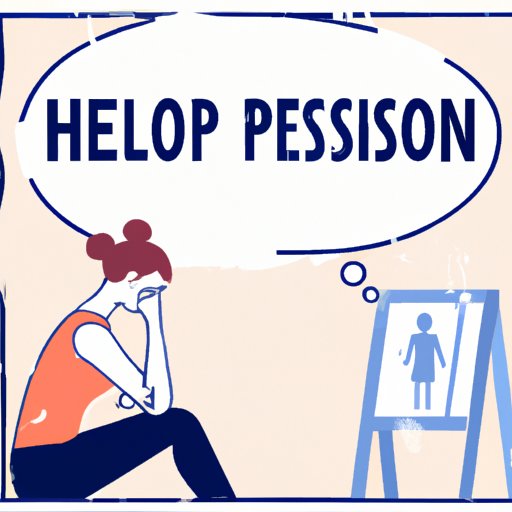Introduction
For many of us, taking a vacation is something we look forward to all year. But when that vacation is over, it can be difficult to come back home and adjust to our normal lives. This feeling of being overwhelmed and out of sorts can be known as post-vacation depression, or PVD.
Post-vacation depression is a feeling of sadness, anxiety, and disconnection that can occur after returning from a trip. It can be caused by a variety of factors, such as the stress of coming back to work, the difficulty of adjusting to a different time zone, or simply missing the fun and relaxation of the vacation itself.
The symptoms of PVD can vary from person to person, but they often include feelings of sadness, lack of motivation, irritability, changes in appetite, difficulty sleeping, and difficulty concentrating. If you’re experiencing any of these symptoms, it’s important to take steps to address them so that you can get back to feeling like yourself again.
Practice Self-Care
One of the most important things you can do to cope with post-vacation depression is to practice self-care. Self-care is any activity that helps to reduce stress and promote physical and mental wellbeing. Examples of self-care activities include exercising, meditating, journaling, taking a hot bath, spending time outdoors, and engaging in creative activities.
The benefits of self-care are numerous. Not only does it help to reduce stress and promote relaxation, but it can also give you a sense of accomplishment and boost your mood. Practicing self-care can also help to increase your energy levels and improve your overall wellbeing.

Stay Connected with Friends and Family
Staying connected with friends and family can also be beneficial for coping with post-vacation depression. Having social support can make a big difference in times of stress, so don’t hesitate to reach out to those close to you. Talking to someone who understands what you’re going through can make all the difference in helping you to feel better.
When reaching out to friends and family, it’s important to be open and honest about how you’re feeling. Let them know that you’re struggling and that you could use their support. You may also find it helpful to make plans to see each other in person so that you can have quality time together.
Set New Goals
Setting new goals can also be helpful for dealing with post-vacation depression. Goals provide a sense of direction and purpose, which can help to keep you motivated and focused. They can also give you something to look forward to, which can help to lift your spirits.
When creating a list of goals, it’s important to make sure they’re realistic and achievable. Start small and focus on tasks that you can easily accomplish. This will help to build momentum and give you a sense of accomplishment that can help to boost your mood.
Get Back Into Your Routine
Getting back into your regular routine can also be beneficial for dealing with post-vacation depression. Establishing a daily routine can help to provide structure and stability, which can make it easier to adjust to life after vacation.
Your routine doesn’t have to be complicated or time-consuming. It can be as simple as waking up at the same time every day, eating healthy meals, and getting enough sleep. Other examples of daily routines include reading, writing, exercising, and spending time with friends and family.
Seek Professional Help
If your symptoms of post-vacation depression persist or become more severe, it may be time to consider seeking professional help. A therapist or counselor can provide guidance and support in dealing with your feelings of sadness, anxiety, and disconnection.
There are many resources available for finding professional help, including online therapy services and mental health helplines. It’s important to remember that it’s okay to ask for help, and that seeking support is a sign of strength, not weakness.
Conclusion
Coming back from a vacation can be difficult, and it’s normal to experience some post-vacation blues. The best way to cope with this is to practice self-care, stay connected with friends and family, set new goals, get back into your routine, and if necessary, seek professional help. By taking these steps, you can start to feel better and get back to enjoying life.
(Note: Is this article not meeting your expectations? Do you have knowledge or insights to share? Unlock new opportunities and expand your reach by joining our authors team. Click Registration to join us and share your expertise with our readers.)
